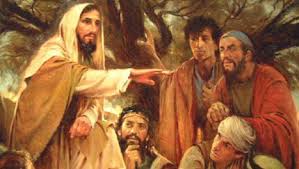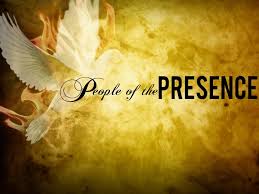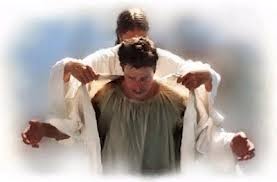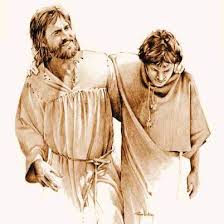
– 22- 1 – 2023 –
Third Sunday in Ordinary time -Year A
Gospel Text (Shorter form) Matthew 4: 12-17 9
vs.12 Hearing the John had been arrested he went back to Galilee,
vs.13 and leaving Nazareth he went and settled in Capernaum, a lakeside town on the borders of Zebulun and Naphtali.
vs.14 In this way the prophecy of Isaiah was to be fulfilled:
vs.15 “Land of Zebulun! Land of Naphtali! Way of the sea on the far side of Jordan, Galilee of the nations!
vs.16 The people that lived in darkness has seen a great light; on those who dwell in the land and shadow of death a light has dawned.”
vs.17 From that moment Jesus began his preaching with the message,
“Repent, for the kingdom of heaven is close at hand.”
********************************************
We have four sets of homily notes to choose from.
Please scroll down the page.
Michel DeVerteuil : A Trinidadian Priest, Specialist in Lectio Divina
Thomas O’Loughlin: Prof of Historical Theology, University of Nottingham.
John Littleton: Director, Priory Institute , Tallaght, Dublin 24
Donal Neary SJ: Editor of The Sacred Heart Messenger *******************************************************
Michel de Verteuil
Lectio Divina with the Sunday Gospels – Year A
www.columba.ie
General notes
This Sunday we move further into the series of readings for the liturgical time called in our tradition “Ordinary Time”. Ordinary Time actually began last week, but in some years the church spends an extra Sunday celebrating the spirit of Christmas/Epiphany.
Today’s passage then belongs to the beginnings of Jesus’ ministry. It is a very significant time. John has been arrested and Jesus decides he must make his move. He is self-confident, determined; he knows what he is about – a role model for us all in our different vocations and also for the church in the world today.
Textual comments
– Verse 12: St Matthew makes a clear link between John the Baptist’s arrest and Jesus’ decision to begin his ministry. The end of one time of hope becomes the beginning of a new and more glorious time.
– Verses 12 to 16: Jesus was entering into a prophetic tradition. He was different – indeed, he was unique – but not totally new. We too, as individuals and as a community, are both unique and rooted in a tradition.
St Matthew also stresses the significance of Jesus’s choice to start in Galilee. Galilee was situated at the extremes of the Holy Land; it was therefore a symbol of Jesus’s vocation to bring God “to the ends of the earth.”
– Verse 17 is the formula used in all the synoptic gospels to summarise the content of Jesus’ teaching. It comprises three statements, and it is best to start with the third.
– “It is close at hand”. Jesus is aware that this is a moment of grace. When we enter into God’s work we always have the sense that we are “called”, part of a movement that is greater than us, and that we are merely God’s instruments. As we saw recently, John the Baptist experienced a similar awe when he began to preach.
– “The kingdom of heaven” is St Matthew’s version of the more common “kingdom of God”, reminding us that the Jews were reluctant to use the name of God. This biblical expression means God’s plan for the world – “the world as it would be if God were in charge.” The Old Testament spelled out God’s plan in detail, for example in the Genesis description of creation before the fall; in Isaiah 11:6-9 and 65:19-25; in Amos 9:11-15. God’s kingdom has two characteristics: harmony and abundance.
– “Repent”. Jesus knows he is calling for a revolution in thinking. The sure sign that we understand God’s kingdom is that we are – and encourage others to be – dissatisfied with the status quo.
We celebrate people who “begin their preaching with this message.” Nowadays many of them are not members of our church and do not even share our Christian faith, but they challenge us, both as individuals and as a church.
Scripture prayer
“Without a revolution of the spirit, the forces which produced the iniquities of the old order will continue to be operative, posing a constant threat to the process of reform and regeneration.” …Aung San Sun Kyi, Myanmar, leader !
 Lord, we remember with gratitude the great liberation movements
Lord, we remember with gratitude the great liberation movements
which have been your blessing for our time:
– the declaration of human rights,
– the affirmation of women’s dignity and right to equal treatment,
– the struggle for independence in former colonies,
– sharing of gifts between different churches, religions and faiths,
– the breakdown of all forms of racial discrimination,
– the recognition of the rights of children.
All these movements arose at a time when their leaders were imprisoned
in one way or another, but new life emerged in unexpected places.
It was like when John the Baptist was arrested and Jesus returned to Galilee
and began preaching that a new era of grace was at hand.
Lord, we remember turning points in our lives
– we started working with the poor;
– we joined a religious community;
– we entered public life.
 A path we had followed previously was leading nowhere,
A path we had followed previously was leading nowhere,
and we knew we like Jesus had to move to a new place,
not to Nazareth, the place where we were comfortable, but to a border country,
so that people who lived in darkness would see a great light,
and on those who dwelt in the land and shadow of death light would dawn.
“Inter-religious dialogue has taken on new and immediate urgency in the present historical circumstances.” … Pope John Paul II
Lord, we thank you that the church today has decided, like Jesus,
to go and settle in the border country, between races and religions, on the far side of the Jordan, where the nations meet.
Lord, we pray today for those who are feeling lost
– rejected by family and friends,
– overwhelmed by remorse,
– having failed an important examination.
We pray that some Jesus may go and sit with them,
so that the prophecy of Isaiah may be fulfilled,
and they who now live in darkness will see a great light,
and on them who dwell in the land and shadow of death a light will dawn.
“By sharing in the cross of the Salvadoreans, the church becomes Salvadorean and credible.” …. Jon Sobrino
Lord, we thank you that, in many countries,
the church, like Jesus, has left centre-stage and gone back to the margins,
settling where people live in darkness and in the shadow of death.
“I have to teach my people that together we can build the people’s church, a true church. Not just a hierarchy or a building, but a real change inside people.”
Lord, we thank you that Jesus is still preaching his message
that your kingdom is within our grasp and that we must change our values.
********************************************************
Thomas O’Loughlin
Liturgical Resources for the Year of Matthew
www.columba.ie
Introduction to the Celebration
 Gathering around the Lord’s table each week we celebrate the fact that we are the People of God, his chosen ones, those whom he has called to be his hands and voice within the creation. To help us live this life we listen each week to the Word of God giving us a glimpse of the world God intends for us, and challenging us to live up to our calling, and each week we are strengthened with the food of life to enable us to be disciples.
Gathering around the Lord’s table each week we celebrate the fact that we are the People of God, his chosen ones, those whom he has called to be his hands and voice within the creation. To help us live this life we listen each week to the Word of God giving us a glimpse of the world God intends for us, and challenging us to live up to our calling, and each week we are strengthened with the food of life to enable us to be disciples.
Today we hear the story of the beginning of Jesus’s ministry:
he came proclaiming the good news
he came healing the sick;
he came and called people by name to be his followers.
If we wanted to think of the life of Jesus in a sound-bite, it would be these tasks: proclaiming, healing, calling.
Now, let us reflect in silence on who we are, why we have gathered, and ask pardon for our failures as children of God.
Homily notes
1. The gospel passage presents us with picture of Jesus continuously engaged in three activities: Proclaiming, Healing, Gathering. We can look at it as a snapshot of the work of Jesus, and of his identity as the Messiah (‘the anointed one’ / ‘the Christ).
2. Jesus is the one who announces the gospel
in the town of Capernaum,
in the countryside,
in the synagogues,
all through Galilee.
His call is for people to change,
– change ways of living with one another,
– change the way we think about the world, others, self.
And know that God is close to us, loving and caring: ‘The kingdom is at hand.’
 3. The coming of Jesus brings forgiveness, healing, renewal, and wholeness.
3. The coming of Jesus brings forgiveness, healing, renewal, and wholeness.
He calls on us to change lives and minds, and he brings us God’s pardon.
He invites us to a new life and
he empowers us to set out to live that new life. The God who is close is the God who is gentle and forgiving.
4. He gathers around him, calling each person by name, a people. We are no longer isolated individuals but part of his new people. We change, start over, and seek to follow him as part of the community who has heard his call and received forgiveness through him.
5. We often forget how these gospel pictures can show us the essential dynamics of being a Christian in clear, strong images – and such is the case today – so let the images speak clearly and do not cloud them with many words.
***********************************
John Litteton
Journeying through the Year of Matthew
www.Columba.ie
Gospel Reflection
Jesus devoted his public ministry to preaching about the nearness of the kingdom of heaven and to inviting people to become his disciples. His lifestyle was guided completely by God’s will and he challenged his listeners to accept God’s will in their lives by rejecting sin and being faithful to his teaching.
 As we reflect on Jesus’ preaching, his most important message is repentance for our sins. In other words, Jesus challenges us to turn away from the darkness of sin so that we can live in the light of God’s loving presence. Sin alienates us from the kingdom of heaven. Repentance demands humility and a fundamental change of heart. Otherwise we cannot truly be Jesus’ disciples.
As we reflect on Jesus’ preaching, his most important message is repentance for our sins. In other words, Jesus challenges us to turn away from the darkness of sin so that we can live in the light of God’s loving presence. Sin alienates us from the kingdom of heaven. Repentance demands humility and a fundamental change of heart. Otherwise we cannot truly be Jesus’ disciples.
Central to repentance is genuine sorrow for our sins. Authentic sorrow is an outward manifestation of the inner journey of conversion. Unfortunately, however, we use the word ‘sorry’ so often and so carelessly that our sincerity is questionable. What, then, does it really mean to say ‘I am sorry’?
To be sorry means to be sorrowful or saddened. Saying that we are sorry for having caused offence and hurt acknowledges that we are saddened because of the wrong that we have done and the hurt that we have caused. (Note: not because we have been caught out.)
Significantly, we are saddened not only because we have offended God or hurt another person but also because we have diminished our own dignity as people made in the image and likeness of God.
If we have no sense of the harm that we have caused when we say that we are sorry, or if we have no intention of changing our behaviour in the future, then our sorrow is insincere because it is incomplete. We cannot claim to be motivated and guided by God’s will if we are not repentant disciples.
 When we celebrate the sacrament of reconciliation sincerely, by confessing our sins and being sorry for them, we demonstrate that we are humble and repentant. We express sorrow for Our sins, knowing that God forgives us as we are absolved from Our sins. God also gives us the grace and strength to resist temptation and avoid sin. Then our sorrow turns into joy.
When we celebrate the sacrament of reconciliation sincerely, by confessing our sins and being sorry for them, we demonstrate that we are humble and repentant. We express sorrow for Our sins, knowing that God forgives us as we are absolved from Our sins. God also gives us the grace and strength to resist temptation and avoid sin. Then our sorrow turns into joy.
Are there any occasions when we are saddened by what we have said or done to another person? Is it easy for us to say ‘Sorry’, or is it difficult for us to do? Valuing and appreciating forgiveness requires sorrow. We have the opportunity of celebrating God’s forgiveness sacramentally by going to confession and acknowledging our sorrow.
Repentance is central to our lives as Jesus’ disciples. Therefore, let our prayer be: ‘Lord God, teach us to be repentant. Encourage us to change our minds and to soften our hardened hearts whenever we offend you and hurt other people. May we realise that, in doing so, we also diminish our own dignity. Help us always, through repentance, to return to your love by changing the direction of our lives and being faithful to your Son’s teaching.
For meditation
Repent, for the kingdom of heaven is close at hand. (Mt 4:17)
*******************************
Donal Neary SJ:
Gospel Reflections for Sundays of Year A: Matthew
www.messenger.ie/bookshop/
Love and call
 We notice a big change of Life for the disciples – they leave the past to follow the Lord, leaving behind their old jobs and roles but also what might block them from living fully. To follow the Lord joyfully we need to believe in ourselves as valued in the sight of God. We pick up messages about ourselves from significant people and we have to let them go.
We notice a big change of Life for the disciples – they leave the past to follow the Lord, leaving behind their old jobs and roles but also what might block them from living fully. To follow the Lord joyfully we need to believe in ourselves as valued in the sight of God. We pick up messages about ourselves from significant people and we have to let them go.
A child whose parents separate often feels unloved and needs the care and love that shows they are okay, Many addicted people have, deep down, a sense of not being loved. Every child coming into the world deserves to know that he or she is loved. We believe that the first gift of our faith is the love of God, the humble God who became one of us in love. In religion we need to touch into the love and the call of God, by gradually letting go of the things in the world that prevent from knowing God’s love. The first of the apostles had something new.  Each of us, week by week can get this new thing, the love of God.
Each of us, week by week can get this new thing, the love of God.
Everything else flows from that. To know the love of God is a huge gift, and to know the love and acceptance of another or a few others in life is also a huge gift. Both are one, in every love and friendship we have.
Is there anything keeping you from living in God’s love?
Ask his help in this.
Lord, Let me know your love day by day and share with all I meet.